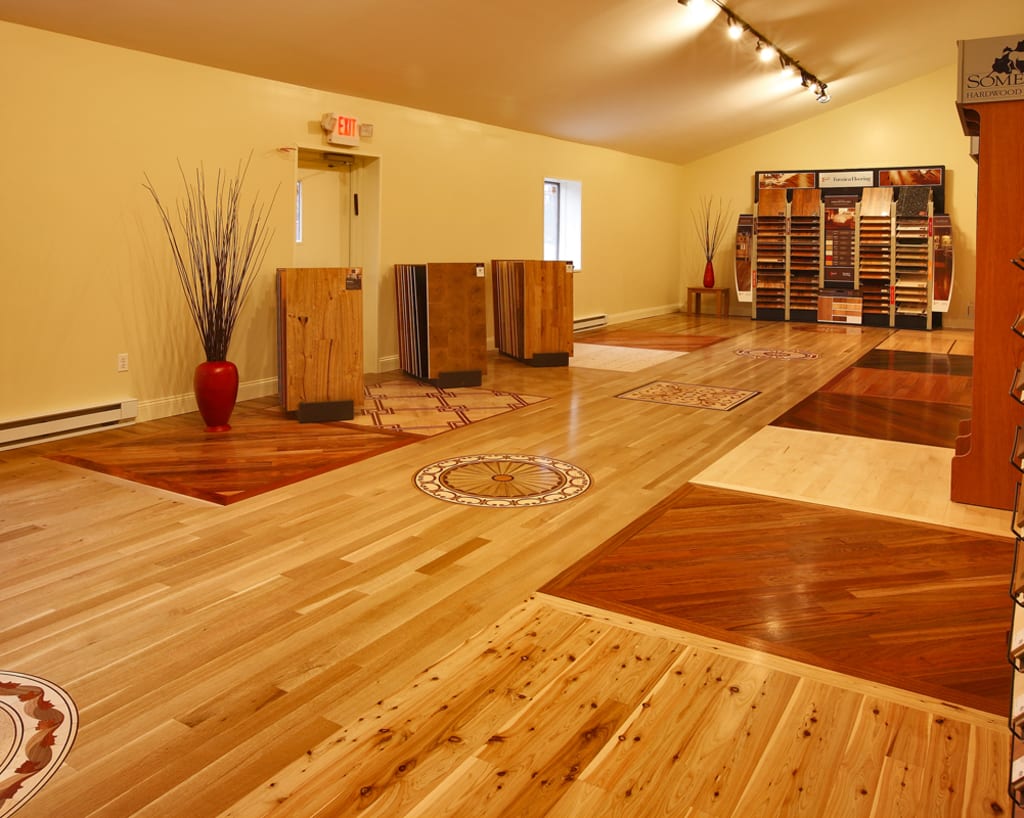The Advantages and Disadvantages of Various Building Materials Flooring
Building Materials Flooring

Flooring is a crucial component of any building, whether it’s a residential, commercial or industrial space. There are many different materials that can be used for flooring, each with their own advantages and disadvantages. In this article, we’ll take a closer look at some of the most popular building materials for flooring, and weigh up the pros and cons of each.
Hardwood flooring
Hardwood flooring is a classic and timeless option for any building. It’s durable, long-lasting, and adds a touch of elegance to any space. One of the main advantages of hardwood flooring is that it’s relatively easy to clean and maintain. It can also be sanded down and refinished multiple times, which means it can last for decades.
However, hardwood flooring can be expensive, especially if you opt for exotic or rare woods. It’s also susceptible to water damage, which means it’s not ideal for high-moisture areas like bathrooms or laundry rooms. Additionally, it can be noisy to walk on, which can be a problem if you have children or pets.
Laminate flooring
Laminate flooring is a more affordable alternative to hardwood flooring. It’s made from layers of synthetic materials that are fused together, and can mimic the look of real wood or stone. Laminate flooring is also easy to clean and maintain, and is generally more water-resistant than hardwood flooring.
However, laminate flooring is not as durable as hardwood flooring, and can scratch or dent easily. It also has a shorter lifespan, typically lasting around 10-15 years. Additionally, laminate flooring can be noisy to walk on, and is not as visually appealing as real hardwood or stone.
Vinyl flooring
Vinyl flooring is a popular choice for high-moisture areas like bathrooms and laundry rooms. It’s affordable, durable, and comes in a variety of styles and colors. One of the main advantages of vinyl flooring is that it’s completely waterproof, which means it can withstand spills, leaks, and even flooding. If you want to know how to get further information about it, then click on the link for more details.
However, vinyl flooring is not as durable as other options, and can tear or scratch easily. It also has a shorter lifespan, typically lasting around 5-10 years. Additionally, vinyl flooring can be difficult to remove once it’s installed, which means it’s not a good choice if you plan on remodeling your space in the future.
Ceramic tile flooring
Ceramic tile flooring is a popular choice for kitchens, bathrooms, and other high-traffic areas. It’s durable, long-lasting, and comes in a variety of colors and styles. Ceramic tile flooring is also easy to clean and maintain, and is resistant to water and stains.
However, ceramic tile flooring can be expensive, especially if you opt for high-end tiles. It’s also cold and hard to walk on, which can be uncomfortable for some people. Additionally, ceramic tile flooring can be difficult to install, and can require professional assistance.
Carpet flooring
Carpet flooring is a popular choice for bedrooms, living rooms, and other cozy spaces. It’s comfortable, warm, and can add a touch of luxury to any space. Carpet flooring is also relatively affordable, and comes in a variety of colors and textures.
However, carpet flooring is not as durable as other options, and can stain or wear down easily. It also requires regular cleaning and maintenance, which can be time-consuming and expensive. Additionally, carpet flooring can be a breeding ground for allergens and bacteria, which can be problematic for people with respiratory issues.
In conclusion, there are many different building materials for flooring, each with their own advantages and disadvantages. When choosing the right flooring for your space, it’s important to consider your budget, lifestyle, and design preferences.





Comments
There are no comments for this story
Be the first to respond and start the conversation.